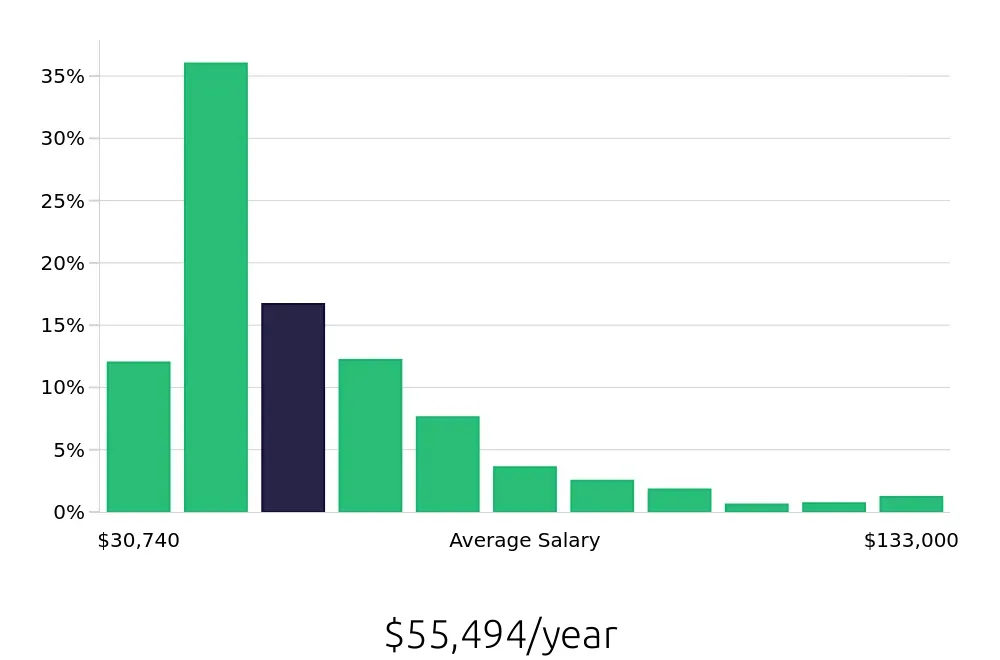Position
Overview
A Residence Life Coordinator creates a welcoming and vibrant community within residential facilities. This professional manages daily operations, ensuring the safety and comfort of residents. They organize events, activities, and programs that foster a sense of belonging and promote student engagement. Daily tasks may include conducting resident meetings, mediating conflicts, and collaborating with campus departments to support residents' needs.
The Residence Life Coordinator also plays a key role in fostering a positive living environment. They work closely with Resident Advisors to provide training and support. They help create a safe and inclusive atmosphere by addressing any resident concerns. This role requires strong communication skills, a keen understanding of community dynamics, and a passion for student development.
Becoming a Residence Life Coordinator involves a series of steps that ensure the right qualifications and experiences are in place. This role requires a mix of education, experience, and specific skills. It is a rewarding position for those interested in student affairs and community building.
Here are the key steps to becoming a Residence Life Coordinator:
Interested in becoming a Residence Life Coordinator? The journey can vary, but it generally takes a blend of education and hands-on experience. Most often, a bachelor’s degree in fields like education, psychology, or student affairs is needed. This usually takes four years to complete.
After earning a degree, gaining experience helps. Positions like resident assistant or student services advisor can provide valuable insight. Some positions may require a master’s degree in student affairs, which adds another one to two years. In total, it can take around five to six years to qualify for a Residence Life Coordinator role.
The exact path depends on the specific requirements of the job and the employer. Always check the job posting for any unique qualifications or experience needed.
The Residence Life Coordinator is responsible for overseeing residential life programs and services in a campus or dormitory setting. They ensure the safety, comfort, and development of residents, coordinate events, and maintain a positive living environment.
Responsibilities:
Qualifications
A Residence Life Coordinator plays a key role in managing student housing and ensuring a safe, inclusive environment. This role involves coordinating events, addressing student concerns, and supporting residential staff. They work closely with students, faculty, and administrators to create a vibrant community. This position requires excellent communication and problem-solving skills. Working in Residence Life can be fulfilling for those who enjoy helping others and creating a positive living experience.
Becoming a Residence Life Coordinator has its benefits and challenges. Consider these pros and cons before pursuing this career path.
A career as a Residence Life Coordinator offers promising opportunities for job seekers. According to the Bureau of Labor Statistics (BLS), there are about 17,600 job positions available each year. This figure shows a steady demand for professionals in this role. With an expected 6.0 percent increase in job openings from 2022 to 2032, those in the field can look forward to growth. This growth highlights the need for Residence Life Coordinators in various settings, including colleges and universities.
Residence Life Coordinators enjoy a competitive salary that reflects their important role. The BLS reports an average national annual compensation of $40,200. This compensation makes the role attractive to many job seekers. Hourly compensation averages around $19.33, providing a good income for those who pursue this career path. These figures indicate that the job not only offers stability but also financial rewards.
Aspiring Residence Life Coordinators should note that the job outlook is positive. The consistent demand for these positions and the projected growth in job openings make it a viable career choice. With the right skills and qualifications, candidates can find rewarding opportunities in this field. This career path provides both professional growth and personal fulfillment.
